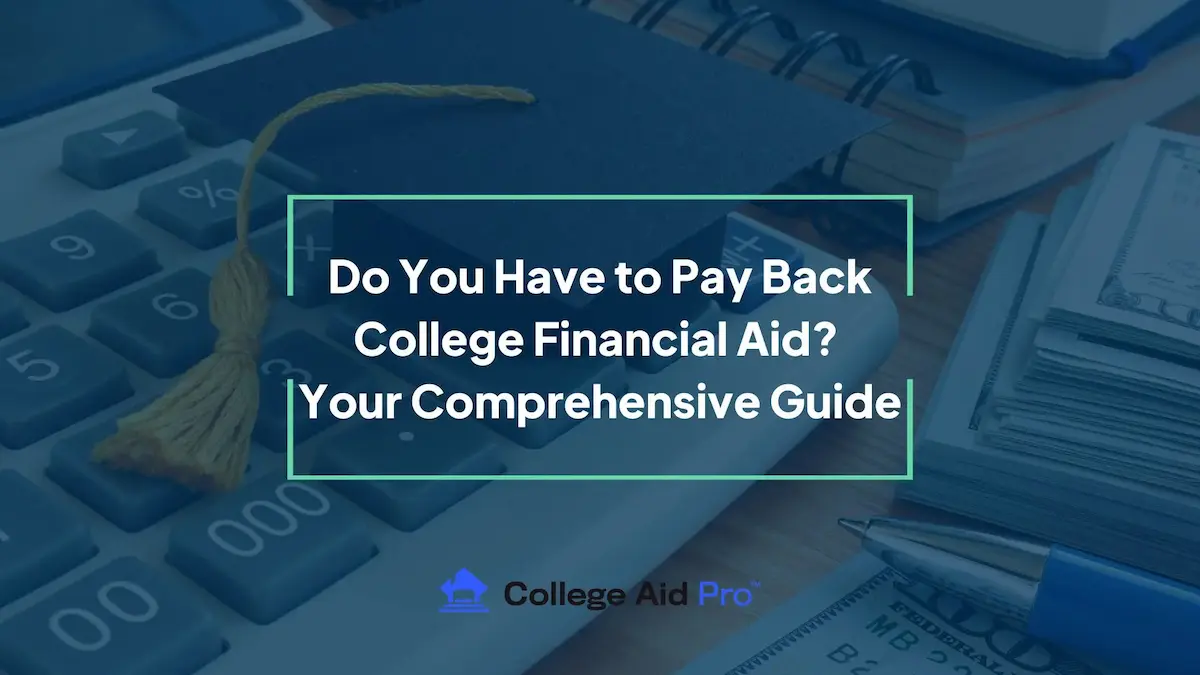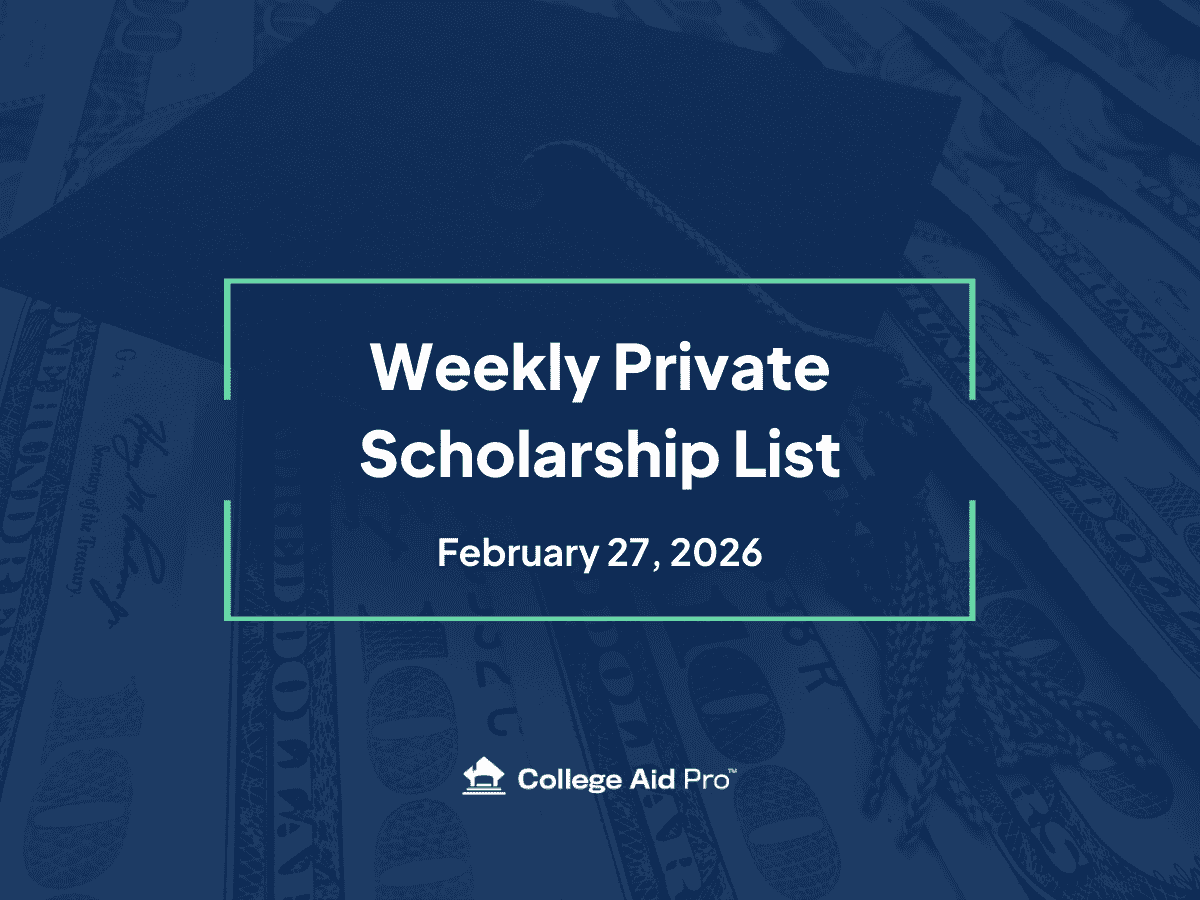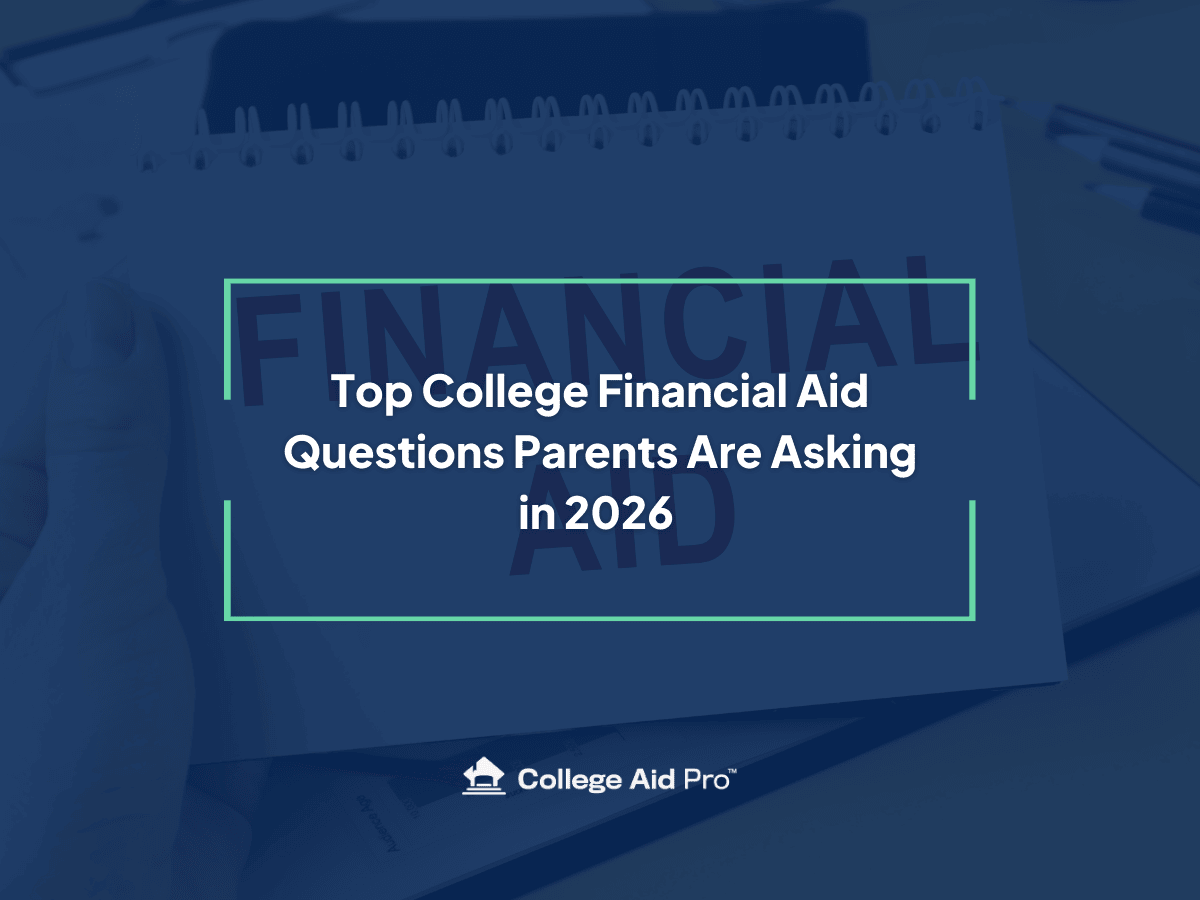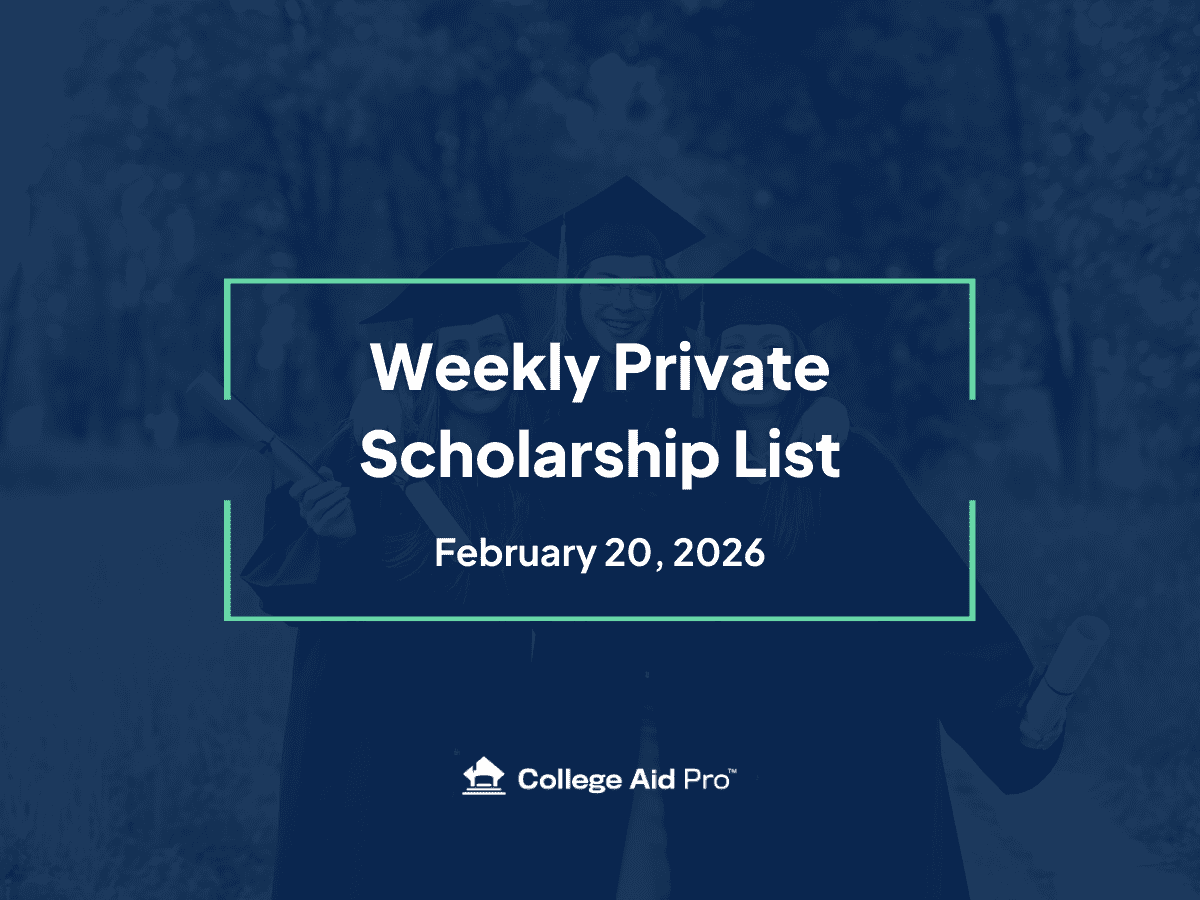Do You Have to Pay Back College Financial Aid?
A college education is expensive for most families. It’s an investment in the future, and for many students and their families, financial aid is a lifeline that helps make higher education more accessible. However, one common question that arises when it comes to financial aid is, “Do you have to pay it back?” The answer isn’t always straightforward, as it depends on the type of financial aid you receive. In this comprehensive guide, we’ll explore the different types of college financial aid and whether or not you have to repay them.

Types of College Financial Aid
-
Grants – Typically Do Not Pay Back
Grants are a form of college financial aid that students typically do not have to pay back. These funds are usually awarded based on financial need and, in some cases, academic merit. Some well-known grant programs include the Federal Pell Grant, state grants, and institutional grants provided by colleges and universities. Types of Grants
Types of Grants
-
- Federal Pell Grant: The Federal Pell Grant is one of the most common forms of financial aid in the United States. It is need-based, and eligibility is determined by your Student Aid Index (SAI), which is calculated by filling out the FAFSA and is based on your family’s financial situation. Pell Grants do not need to be repaid.
- State Grants: Many states offer their own grant programs to residents pursuing higher education within the state. The eligibility criteria and award amounts vary by state, but, like federal grants, state grants are typically not repayable.
- Institutional Grants: Colleges and universities may also provide grants to their students, often based on both need and merit. These grants are offered directly by the institution and, in most cases, do not require repayment.
-
Scholarships – Do Not Pay Back
Scholarships are another type of college financial aid that does not usually require repayment. Scholarships can be awarded for a variety of reasons, including academic achievement, athletic abilities, community involvement, and more. Many scholarships are offered by private organizations, foundations, and businesses, in addition to those provided by colleges and universities.

Types of Scholarships
-
- Merit Scholarships: Merit-based scholarships are awarded based on your academic, athletic, or artistic achievements. They are typically not repayable and serve as recognition of your accomplishments.
- Need-Based Scholarships: Some scholarships are awarded based on financial need, similar to grants. These scholarships do not need to be paid back and can significantly reduce the financial burden of college.
- Private Scholarships: Private organizations and businesses often offer scholarships to students who meet specific criteria. These scholarships are typically free money and do not require repayment.
-
Federal Work-Study – Do Not Pay Back
Federal Work-Study is a federal program that provides part-time jobs for undergraduate students with financial need. The income earned through Federal Work-Study jobs is not a grant or scholarship; it is earned income. Students are paid at least the federal minimum wage, and the money earned can be used to cover educational expenses. Since it is earned income, it does not need to be repaid.
-
Federal Student Loans – Must Pay Back
Unlike grants and scholarships, federal student loans do require repayment. Federal student loans are a common source of college financial aid for college students, but they come with the responsibility of paying back the borrowed funds, usually with interest. There are several types of federal student loans.

Types of Federal Loans
-
- Direct Subsidized Loans: These loans are need-based and do not accrue interest while you are in school at least half-time, during the grace period, or during deferment.
- Direct Unsubsidized Loans: These loans are not based on financial need, and interest begins accruing from the moment the loan is disbursed.
- Direct PLUS Loans: These loans are available to graduate students and parents of dependent undergraduate students. They require a credit check and may have higher interest rates than other federal loans.
- Direct Consolidation Loans: These loans allow you to combine multiple federal student loans into one loan, simplifying the repayment process.
Federal student loans offer various repayment plans, including income-driven repayment options that consider your income and family size. While you do have to pay back federal student loans, they often come with more flexible repayment terms than private loans.
-
Private Student Loans – Must Pay Back
Private student loans are offered by private lenders, such as banks and credit unions. Unlike federal student loans, private student loans do not have the same borrower protections and flexible repayment options. Interest rates on private loans may also be higher. Repayment terms and conditions vary depending on the lender and the specific loan agreement. In most cases, private student loans do need to be repaid, often with interest.
-
State-Specific Programs – Must Pay Back
In addition to federal and institutional aid, many states offer their own college financial aid programs to residents pursuing higher education within the state. These programs can include grants, scholarships, and loan forgiveness programs. It’s important to research and understand the specific terms and conditions of state-specific financial aid programs, as they can vary widely.
-
Loan Forgiveness and Repayment Assistance Programs – Pay Back Amounts Vary
While most student loans must be repaid, there are certain programs that can help borrowers manage their loan debt. These programs include:
-
- Public Service Loan Forgiveness (PSLF): PSLF forgives federal student loan debt for borrowers who work in qualifying public service or nonprofit jobs and make 120 qualifying payments.
- Teacher Loan Forgiveness: This program provides loan forgiveness for teachers who work in low-income schools or educational service agencies.
- Income-Driven Repayment (IDR) Plans: IDR plans base your monthly loan payments on your income and family size. After a certain number of years of payments (typically 20-25 years), any remaining loan balance may be forgiven.
- Loan Repayment Assistance Programs (LRAPs): Some employers and organizations offer LRAPs to help employees pay off their student loans as a job benefit.
In summary, whether or not you have to pay back college financial aid depends on the type of aid you receive. Grants and scholarships are typically free money that does not require repayment, while federal and private student loans do need to be repaid, often with interest. It’s essential to carefully read and understand the terms and conditions of your financial aid package and make informed decisions about borrowing for your education. Additionally, exploring loan forgiveness and repayment assistance programs can help you manage your student loan debt more effectively. College can be a significant investment, but with the right financial aid strategy, you can make it more affordable and attainable.



